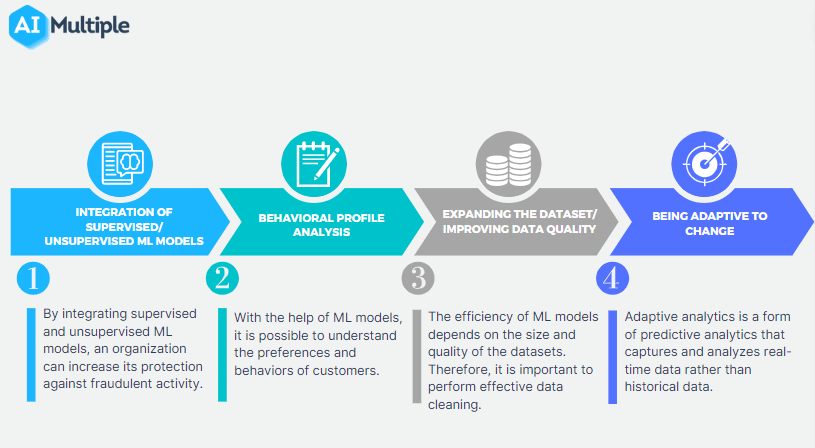In the ongoing battle against fraud in payment networks, the integration of data analytics and artificial intelligence (AI) has emerged as a pivotal strategy. Termed as “AI-Powered Fraud Detection,” this technological advancement has enabled payment providers to proactively tackle first-party fraud instances, where consumers dispute legitimate charges. Amidst this evolving landscape, major players like Mastercard and Visa have unveiled sophisticated programs aimed at fortifying defenses against fraudulent activities.
Unveiling AI-powered fraud detection mechanisms
Amidst the rising tide of first-party fraud, payment networks have escalated efforts to fortify their defenses through advanced technologies. Mastercard, in its recent announcement, unveiled its First Party Trust Program, slated for a later-year rollout. This program, as detailed by the company, harnesses enhanced transaction insights and AI algorithms to scrutinize transactional patterns and behaviors, potentially indicative of first-party misuse. Merchants will be empowered to submit pertinent transaction data, aiding in the detection of fraudulent activities and strengthening the case against dishonest chargebacks.
Mastercard’s proactive stance against first-party fraud underscores the imperative of leveraging data and AI in identifying nuanced patterns often overlooked by conventional fraud detection methods. By empowering merchants with a secure channel for data submission, Mastercard aims to enhance the efficacy of its network-level analytics, thus thwarting fraudulent disputes at their inception. Through this collaborative approach, the payment giant seeks to bolster consumer trust and safeguard the integrity of its payment ecosystem against fraudulent encroachments.
Visa’s data-driven dispute resolution framework
In tandem with Mastercard’s initiatives, Visa has rolled out its Compelling Evidence 3.0 (CE 3.0) program, aimed at revolutionizing dispute resolution mechanisms. This program, introduced last April, leverages data analytics to establish a robust connection between cardholders and merchants, thereby facilitating expedited dispute resolutions. By tracing key identifying fields across historical transactions, including user ID, device ID, IP address, and shipping address, Visa’s CE 3.0 aims to provide irrefutable evidence of transactional legitimacy, mitigating the prevalence of fraudulent chargebacks.
Visa’s strategic emphasis on data-driven dispute resolution exemplifies the industry’s collective endeavor to stay ahead of evolving fraud tactics. By establishing a verifiable footprint between consumers and merchants, Visa endeavors to streamline dispute resolution processes, minimizing the operational overheads associated with fraudulent disputes. This proactive approach not only augments consumer confidence but also underscores Visa’s unwavering commitment to fostering a secure and resilient payment ecosystem.
Ensuring equitable access and inclusive security measures
As payment networks continue to fortify their defenses against first-party fraud, the efficacy of AI-powered fraud detection remains a focal point in the industry’s ongoing evolution. However, amidst these technological advancements, pertinent questions arise regarding the scalability and inclusivity of these solutions. How can payment providers ensure equitable access to advanced fraud detection mechanisms for merchants of all sizes? As the industry charts a course towards heightened security and transparency, addressing these concerns will be paramount in fostering a resilient and inclusive payment landscape.




